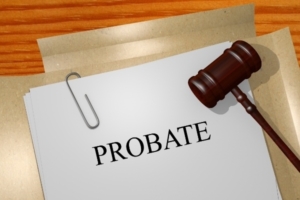
In this blog, we explain what you should know about long-term healthcare and probate.
What Is Long-Term Care?
Long-term care is a combination of services that assist people with their medical and personal needs over a long period of time. For example, a person may need help with essential daily tasks like dressing, bathing, eating, housekeeping, and going to appointments. Long-term care may be necessary for someone who is elderly, disabled, or suffering a debilitating injury or illness. Caregivers provide long-term care in different settings, such as private homes, nursing homes, or senior living communities.
What Are the Costs of Long-Term Care?
The cost of long-term care depends on a variety of different factors, such as:
- The type of care needed;
- The duration of care;
- The time of day that cares is needed;
- The service provider; and
- Where care is being given.
For example, if you live in Jacksonville, Florida, and receive in-home care from a health aid, this will cost approximately $4,767 per month. Alternatively, the cost for a private room in a nursing home facility is roughly $8,882 per month. (Based on 2021 information)
Who Pays for Long-Term Care?
You pay for long-term care. Since long-term care services aren’t strictly medical, Medicare and many other health insurance plans don’t typically cover the costs of long-term care.
Medicare
There are very limited services that Medicare will cover. For example, Medicare only pays for long-term care if you need skilled services or rehabilitation in either your home or a nursing home. Medicare will cover up to 100 days of care in a nursing home. Helping with daily activities (also known as non-skilled assistance) makes up a majority of long-term care services, but Medicare won’t pay for this.
Medicaid
Medicaid may pay for some long-term care services, but only if you’re below a certain income level and meet your state’s eligibility requirements.
Private Payment Options
There are different private payment options to help with the costs of long-term care, such as life insurance, long-term care insurance, and annuities. There are also ways to protect your assets with certain estate planning and asset protection tools so that you have money saved for long-term care costs.
What Is Typically Covered in a Long-Term Care Policy?
Some people purchase long-term care insurance to cover these costs. This type of insurance primarily covers non-medical services, such as:
- At-home care;
- Nursing home care;
- Assisted living facility costs;
- Assistance with day-to-day tasks;
- Short-term hospice care; and
- Respite or temporary care.
What long-term care insurance does not cover is medical care costs and payments to family members who provide in-home care. These policies can be costly depending on your age and needs.
How Do Probate Laws Work in Florida?
Before we go into how probate works, let’s talk about how it relates to long-term care. If the decedent (the person who died) was a Medicaid recipient, their estate might be required to reimburse Medicaid for long-term care expenses that were paid. Essentially, Medicaid becomes a creditor of the estate and can file a claim seeking payment. Ultimately, this means less money and property to pass on to family members, charities, or other beneficiaries. Probate can also be expensive, which will further deplete the estate.
Florida Probate
The Florida probate rules and processes are complex. Probate is the legal process of winding up a person’s affairs after they die. Probating an estate involves the following:
- Locating estate planning documents;
- Identifying the decedent’s assets;
- Valuing the property in the estate;
- Notifying creditors, heirs, and beneficiaries of the decedent’s death;
- Paying off debts and taxes; and
- Distributing any remaining property to beneficiaries.
There are three different types of probate in Florida: formal administration, summary administration, and disposition without administration. Formal administration is the most common type of probate and involves a full probate proceeding, as described above. Summary administration is a simplified version of probate and can be used for estates valued at $75,000 or less or if the decedent died more than two years ago. Disposition without administration is available in limited circumstances, but it avoids a probate hearing entirely.
With proper estate planning, you can avoid probate, save money, and have more to leave your family. Further, if your estate doesn’t go through probate, then the federal and state Medicaid program has nothing to file a claim against. Part of estate planning should involve a thorough discussion and plan for long-term care.
What About Long-Term Care Planning?
Hopefully, you won’t need these types of services, but planning for long-term care can keep you from depleting your life savings. There are many different vehicles and strategies to use that can protect your assets so that you have money for long-term care and something to leave your family. For example, you can set up a trust in such a way that you qualify for Medicaid, avoid probate, and dispose of your assets the way you want to.
When it comes to long-term care planning, you need an experienced estate planning attorney who can get creative with different tools and techniques.
Contact the attorney at Beller Law, P.L.
Our probate and estate planning lawyer at Beller Law, P.L. can help you navigate the complexities of long-term care planning and probate. We are a team of experienced and compassionate lawyer with over 40 years of combined trial experience. Our Jacksonville probate attorney have in-depth knowledge of Florida’s probate law. We take the time to learn about you, your family, and your specific situation, and we focus on getting the results you want. Contact one of our Jacksonville probate and estate planning attorney today by submitting an online inquiry or calling our office.
